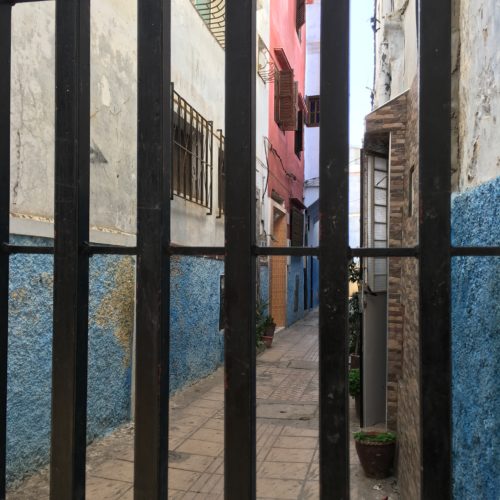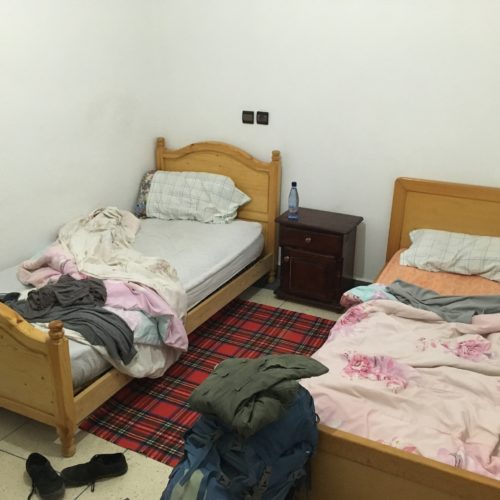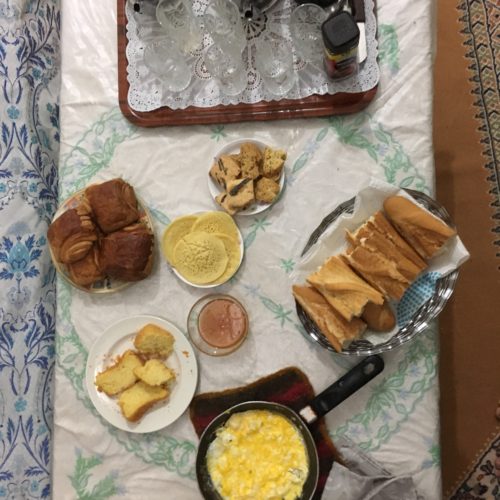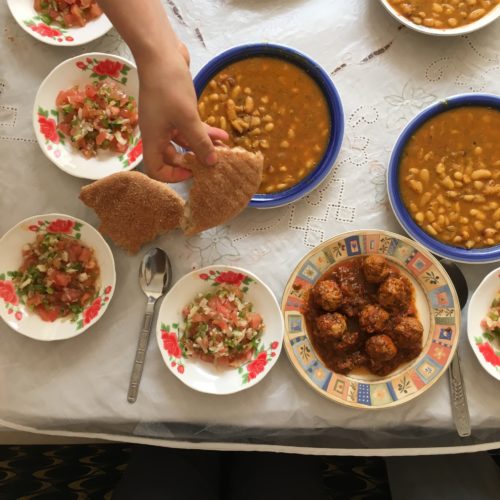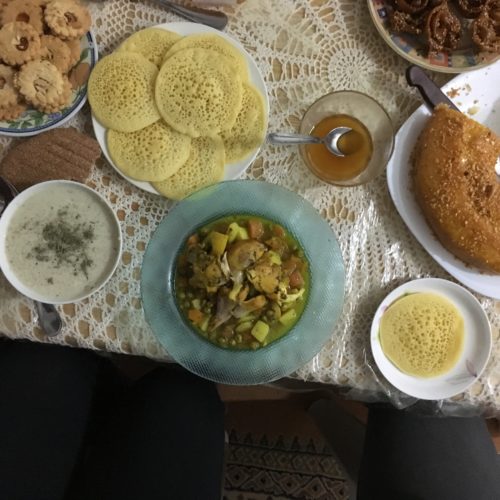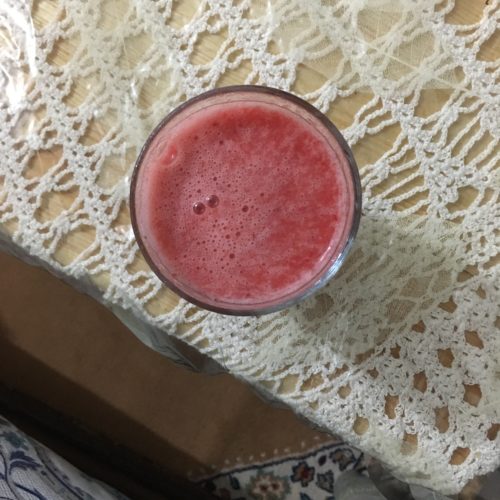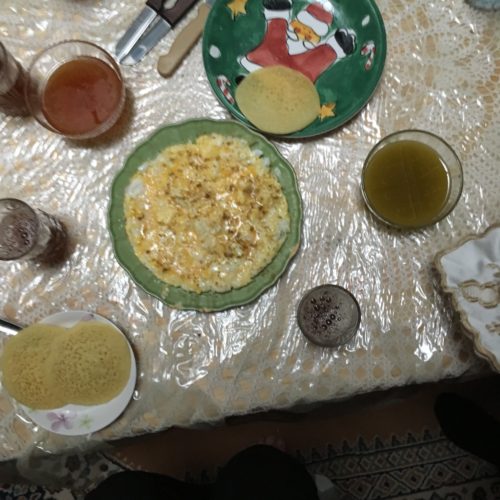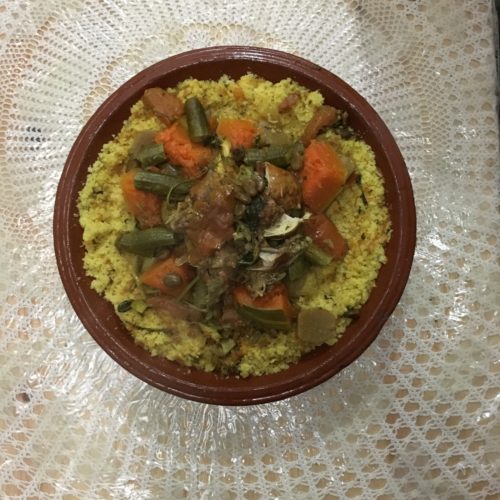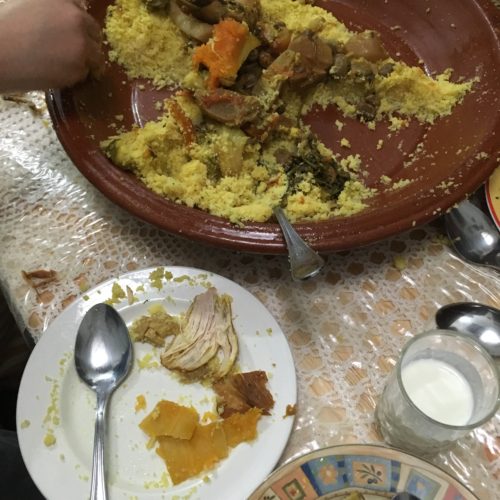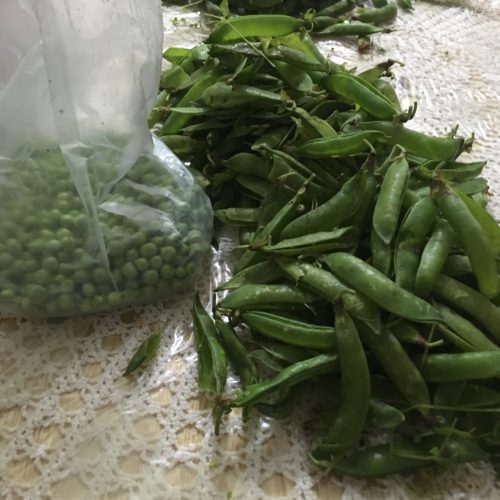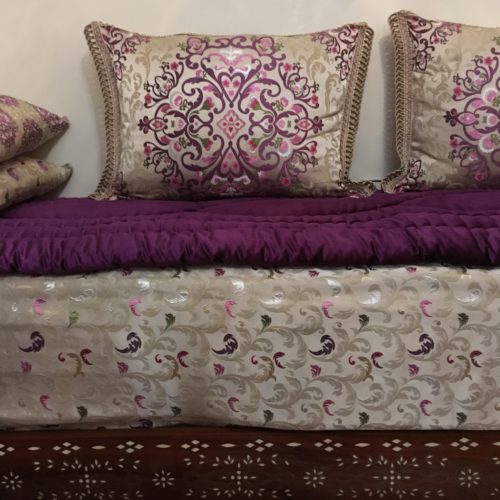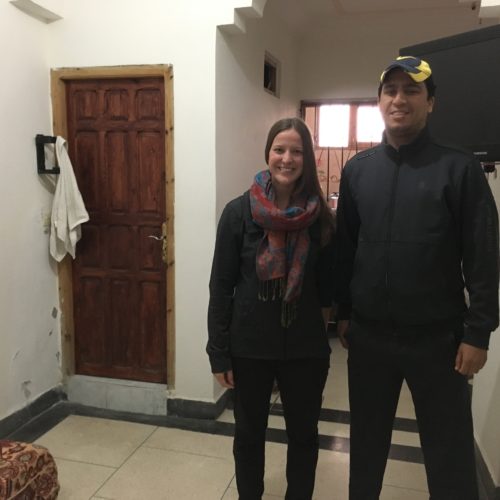Luckily, when you choose to participate in a program like teaching English in another country, you get lodging as well. And luckily, when I choose to volunteer with IVHQ in Rabat, they put you up with a host family. Now, if you like your own space or want your American food and habits, this would not be very exciting. But as someone who chose Morocco based on it’s rich and diverse culture, I was ecstatic to have a lens into the life of a real Moroccan and Muslim, family.
If you want to read more about my volunteer teaching experience, read my post: Volunteering with ILCS in Morocco.
First noteworthy mention, my family did not speak French, and certainly didn’t speak English. There were two sons in the house, who usually only appeared for supper, if that, and they knew English well, and one of them French. So it was lucky that I had a roommate to take on this adventure with. She happened to be there for only week but her placement was at an orphanage. But she flew into Paris from the East Coast as well and we quickly became besties. We would mostly sit in silence as the family chatted in Arabic. Quite awkward, you can imagine. When they wanted to tell us something, they would just look at us and smile, and point, and speak more Arabic. I kept thinking, they must understand me if I say “Yes, please” or “I like the soup”, but no. You can’t just understand a language you don’t know.
In Morocco, it’s quite common for extended families to live together. There’s a belief that after your parents raise you, it’s important for you to look after them. Not to mention, it’s a relatively poor country and it’s more economical to live together. In our house, there was the mother Sadhia, the grandma Haja, and Sadhia’s two sons, Ilias and Hamza. On my stay the week later, I met her middle son, but I don’t remember his name. Ilias was the oldest, and his wife, Hasma, also lived in the house. Another noteworthy mention, Hasma was maybe 17 years old and had braces, and Ilias had at least 15 years on her. They were lovely. Sadhia was clearly the single leader of the household, but Haja had the kind of age that demands respect and attention. Her voice was so high and frail and her eyes so kind, you couldn’t help but give her a warm smile every time she talked.
Our living quarters were modest. The house was three stories, and the ceiling opened up to a huge skylight that gave the living room a courtyard-like feel. I shared a bedroom with Jess, and there were another two downstairs, one of which acted as the prayer room. Aside from that, there was a small bathroom, kitchen, and living room with the sdader (large couch surrounding the walls). The first couple of days, we went upstairs for dinner and lunch, and there was another living/dining room there with a larger kitchen. There must have been a bedroom as well, because the sons never slept downstairs. But Sadhia and Haja and possibly whatever friend was over seemed to sleep on the couch or in the prayer room, wherever they felt. Doesn’t matter. The shower was hot, the bed plenty comfortable, and the food good.
Boy, was the food good, which I am extremely thankful for, because there was a lot of it. Breakfast usually woke us up around 7:00. With every meal, it was clear that Sadhia tried her hardest to give us only the best food on the table, and also to make every traditional Moroccan meal for us at least once. Which is why for breakfast, we had eggs, which nobody else would touch. The menu was eggs, baguette, beghrir (flat, holey pancakes), khobz (traditional Moroccan pita bread), laughing cow cheese, honey, and olive oil for dipping (they usually put both on the same item) cookies and mint tea. Sometimes they put out coffee, but they make coffee by pouring a glass of milk and adding a dry packet of instant coffee. So obviously, I chose tea. Lunch was light, if that exists in Morocco. Soup with beans, bread, tomato and onion salad. Sometimes they’d serve fish, roasted peppers and harissa with pita, like you find from street vendors a lot—and of course, cookies, cake, and mint tea. Dinner was late, but for our benefit, they usually bumped it up to 19:30. It was always a feast. We had tajine, which is basically any meat and veggie combo and is named by the vessel it’s cooked in. There was always soup, and as I mentioned before, the meat was usually only placed in front of us, so the family ate soup. Along with bread, bread, cookies, cake, and mint tea. Couscous is a Friday tradition, which they participated in by making the largest platter of couscous I could imagine. They even serve it in restaurants only on Friday, similar to a fish fry. And like everything else in Morocco, it’s eaten with your hands. There’s a certain skill to smooshing potatoes and veggies with the grains to hold it together. But thankfully, this is the one meal they provided us with spoons, and we used them.
Not only was there a lot of food but it was served or offered to us constantly. It’s known of Moroccans that if they haven’t offered you something at least three times, they’re being rude. I’d hardly call it that, but you get the idea. The same holds true for the mint tea. And if you haven’t drank it yourself, you couldn’t know how much sugar they must put in one carafe. It’s sweet, and so is the experience. The tradition I will most certainly miss most is pouring the tea. It’s important that the tea is poured from as high above the glass as possible to provide the most bubbles. Another tradition in my family was to watch television with every meal. Not just TV, but soap operas dubbed over in Arabic. If I can place the word dramatic in front of soap opera without being redundant, I will, because they were quite terrible. But from what I can tell, the family genuinely enjoyed every last damsel in distress.
Naturally, I wanted to take photos with the family I grew so fond of, but they did not like being the subject of photos and miraculously knew the word Facebook very well. “No Facebook,” with the shake of a finger was used often. What I discerned was that because their headscarves were tied more loosely or even sometimes taken off at home, they did not want to be seen in the public eye. Being immersed in an Islamic country wasn’t as noticeable as I thought it would be. What I did observe about daily Muslim life was prayer. They pray five times a day and I feel it was most noticeable in Rabat as opposed to the more touristy cities I visited. It seemed strange to me that most mosques and prayer rooms were only filled with men, until I saw from inside the home that the women are always home. And they do pray, often before or after the call, depending on what duties they’re tending to at the moment. Now, I’m at least savvy enough to have known they pray five times daily, but the surprise came when I learned they call the prayer on speakers throughout the city, every day, five times a day. And with the first call at 6 am, it’s kind of natural that it dictates the entire day.
On our last night there, the wife brought out robes and put them on us. Then she tied our headscarves and led us to the second floor. And lo and behold, the entire second floor is the most ornate living room I could have imagined in this house. Beautiful sdader upholstered with rich purple cloth and embroidered pillows. And chandeliers! There was also a small dining table to the side and pictures of loved ones on the walls. Apparently we weren’t guests important enough to spend time here, but it was clear she was offering something nice by bringing us upstairs.
Now, it never became clear to me what people in Morocco do. We went to our placement sometime mid-morning, and the women were at home. Hasma sometimes left in professional looking clothes, so I assume she held a job. But somehow, when we returned at 2:00 in the afternoon, all the women were home. It didn’t just hold true of our family, but when you’re out in the Medina or the new city, people are always around. The whole city is shopping, chatting—the men wasting hours at outdoor cafés. It really doesn’t make sense to me, but it certainly contributes to your ability to relax and live on Moroccan time.
Looking back on that week with the family, there was really not a single familiar experience. Their days run entirely different than ours in the U.S. But their concerns and care for each other are universal.


